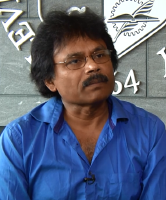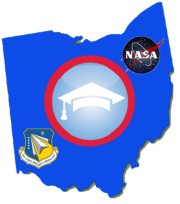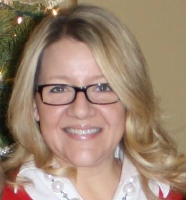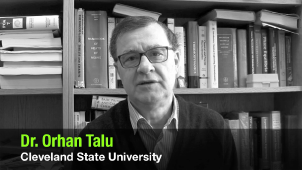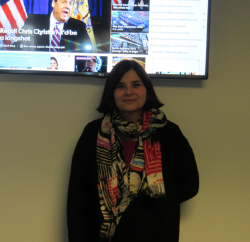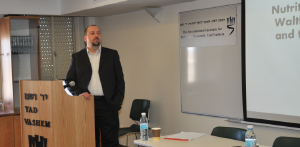 |
|
Barsanjit Mazumder Receives
Prof. Barsanjit Mazumder from the Center of Gene Regulation in Health and Disease (GRHD) and the Department of Biological, Geological and Environmental Sciences (BGES) in the College of Sciences and Health Professions (COSHP) has renewed his NIH R01 grant for a second time. Prof. Mazumder's R01 grant began in March 2005, and has since brought over $5,000,000 of research funding to CSU. Prof. Mazumder's grant is titled "Translational silencing in monocytes: Role of L13a," and is devoted to the study of uncontrolled inflammation, which is a leading cause of many diseases, including atherosclerosis and cardiovascular disease. Inflammation is a cellular defense mechanism that involves immune cells and that is necessary for protection against infection. However, inflammation must be carefully controlled because chronic inflammation can lead to numerous diseases, including heart disease and stroke. Prof. Mazumder's research team has discovered new information about how cells protect against inflammation, which could greatly enhance the development of therapies to reduce the risk of disease. "Human cells have natural protection systems that shut off inflammation if it begins to do damage to the body," says Prof. Mazumder. "Our team identified, for the first time, a specific key to these systems, a ribosomal protein called L13a that blocks the synthesis of inflammatory molecules leading to reduced inflammation in cells. This discovery could lead to the development of specific therapies to promote L13a-dependent inflammation resolution in cells where natural protection has been weakened." Prof. Mazumder's research has been published in premier research journals such as Cell; Molecular Cell; Journal of Immunology; Molecular and Cellular Biology; Atherosclerosis, Thrombosis, and Vascular Biology; and Cellular & Molecular Immunology. Prof. Mazumder's team plans to further investigate how L13a impacts different types of cellular inflammation, and how that inflammation impacts disease development in humans. Click here for more details about Prof. Mazumder's research.
CSU Receives $1,000,000 Ohio Federal Research Network Grant
The Federal Research Network awarded CSU a two-year $1,000,000 grant to support the Ohio Federal Military Jobs Commission (FMJC). The grant will be led by Dr. Jerzy Sawicki, Vice President for Research. The FMJC initiative is a State of Ohio program that focuses on the development and commercialization of high-priority federal research at Ohio universities. CSU will provide business development, technology transfer, industry outreach, networking, and workforce development services to four technical Centers of Excellence at universities across Ohio. The FMJC initiative will provide CSU the opportunity to develop as an innovation leader, and to directly engage with universities across Ohio and with researchers at the NASA Glenn Research Center and Wright-Patterson Air Force Base. Click here for more details about the grant.
Prof. Cyndi Hovland-Scafe joined CSU in fall 2013 as a college associate lecturer in the School of Social Work. In fall 2015 she accepted a position as an assistant professor. She also directs the Education Core for the Center of Health Disparities at CSU. She develops inter-professional educational opportunities, both on campus and in partnership with the community, to raise awareness of health disparities and to reduce health disparities. Prof. Hovland-Scafe's research is grounded in nearly 20 years of practice as a medical social worker, grief counselor and supervisor, grief camp director, and hospice psychosocial and spiritual manager. Her research explores disparities in healthcare, end-of-life care, death and dying, grief and loss, spirituality, aging, care-giving, Alzheimer's disease and other dementias, and inter-professional practice and education. In her work at the University of Wisconsin-Madison, where she received her Ph.D. in 2013, Prof. Hovland-Scafe studied the experiences of family caregivers of elders with dementia. She explored how caregivers define preparedness for the death of an elder with dementia, the benefits and outcomes of not being prepared, hindrances to preparedness, factors that help caregivers prepare for death, and inter-professional recommendations to prepare caregivers for death. She is currently expanding her research by examining the preparedness for death of ethnic and racial minority elders who care for individuals who are dying from dementia-related conditions. Prof. Hovland-Scafe is also collaborating inter-professionally on studies that explore spirituality in health care education, student reflections on health disparities, and education simulations that focus on the geriatric population. In addition to presenting her work at national conferences, Prof. Hovland-Scafe has published her research in peer-reviewed journals and currently has a manuscript under final review with The Gerontologist, which is one of the top-rated gerontology journals in the world.
Featured Researcher Video Series - Orhan Talu
Research by Prof. Orhan Talu is the focus of the latest installment of the Featured Researcher Video series. Prof. Talu is a professor in the Department of Chemical and Biomedical Engineering. He has made a broad range of contributions to teaching, service, and research since arriving at CSU in 1986. The main theme of his research is interfacial phenomena between solids and fluids, and includes molecular simulations, porous material synthesis, kinetics and equilibrium experiments, and processes. His thermodynamics research interests include phase equilibria, interfacial phenomena, adsorption, molecular simulations, experimental measurements, and classical and statistical modeling. His kinetics research interests include micropore diffusion, meso- and macro-pore diffusion, membrane permeation, and theoretical modeling. His process-related research interests include gas separations (pure oxygen from air), gas (methane and hydrogen) storage, environmental problems, bio-separation, and ion-exchange. His materials-related research includes studies on various silica systems, both with and without field enhancement, zeolites, and amorphous porous materials. We encourage you to learn more about Professor Talu's research and to take a look at our previous Featured Researcher Videos.
Prof. Cheryl Bracken is a professor in the School of Communication, and is also the director of the Media Engagement and Digital Interaction (MEDIa) Center. The MEDIa Center allows affiliated faculty to conduct both academic and client-based research. The focus of the center is to explore the impact on users of media content, media form, and communication technologies; the role of audiences in participatory communication; and user experience research. The MEDIa research facilities include eye-tracking hardware and software; psychophysiological recording capabilities; media viewing rooms and video game stations; computers and software for questionnaire design, survey research, social network mapping, and data analysis; and social media aggregation software. Prof. Bracken's research explores people's experiences with popular media. Popular media is defined as media channels that people use in their daily lives for entertainment and news consumption, including television, cinema, radio, video games, online content, computers, tablets, and smart phones. Her research has been published in Media Psychology, Journal of Communication, and American Journal of Health Behavior. She is the co-editor of Immersed in Media: Telepresence and Everyday Life (Routledge, 2010).
News from the Technology Transfer Office Patent: The United States Patent and Trademark Office has issued U.S. Patent No. 9,268,315 B2 to CSU for Prof. Zhiqiang Gao's invention, "Extended Active Disturbance Rejection Controller." Prof. Gao's motion control technology has applications in multiple fields, including motor control and factory automation. This patent is part of the intellectual property portfolio that CSU has licensed to LineStream Technologies.
I-Corps@Ohio Update: Prof. Ye Zhu, who is an associate professor in the Department of Electrical Engineering and Computer Science, and his doctoral student Jonathan Gurary, have received an invitation to submit a full proposal to the I-Corps@Ohio program. This is the first I-Corps@Ohio invitation to CSU faculty. Prof. Zhu's proposal aims to provide novel, highly secure, but user-friendly log-in screens for mobile phones. The NSF-based I-Corps@Ohio program provides hands-on training to Ohio faculty and students in the lean launchpad® methodology. Federal Research Network: The Federal Research Network, for which CSU is providing commercialization and workforce development services, has issued a call for white papers for $8.1M of phase 2 funding. One project requirement is to include collaboration with researchers from Ohio federal research laboratories, such as NASA Glenn Research Center or the Air Force Research Laboratory. White paper submissions are due March 31, 2016. Interested faculty should contact Jack Kraszewski of the TTO for further information and for a copy of the call for white paper materials.
New Journal Edited by Professors Candice Hoke and Brian Ray
A new journal, Cybersecurity, Data Privacy & eDiscovery Law & Policy eJournal, is being edited by CSU professors Candice Hoke and Brian Ray. Profs. Hoke and Ray are co-directors of the Center for Cybersecurity and Privacy Protection in the Cleveland-Marshall College of Law. The new journal is part of the Social Science Research Network (SSRN), which is the top research repository in the world, with almost 300,000 authors, over 500,000 papers, and over 600,000 abstracts across multiple disciplines. This new eJournal fills an important gap in SSRN's Legal Scholarship Network by collecting and abstracting papers that address the legal and regulatory aspects of cybersecurity, data privacy, and eDiscovery, and by providing a hub for research across all social science disciplines in these interconnected fields. The Center for Cybersecurity and Privacy Protection takes a cutting-edge, interdisciplinary approach to address privacy and cyber-risk management concerns. Through innovative programming, training, and practical research, the Center builds partnerships bridging organizational, professional and political divisions; integrates technical, legal, and business perspectives; creates dialogue between government agencies and regulated entities; and promotes creative legal, technical, managerial and regulatory approaches to security and privacy.
The History of Institutional Review Boards
On Wednesday, March 30 at 5:00 pm in the FT ballroom, the Department of History is sponsoring a presentation by Dr. Laura Stark of Vanderbilt University. Dr. Stark will present her research on the history of IRBs: "The Past and Future of Human Research Regulation: Principles, Procedures, and the Changing Nature of Truth." Dr. Stark is an assistant professor at Vanderbilt University's Center for Medicine, Health, and Society, and an associate editor of the journal History & Theory. Her talk will be based on her book, Behind Closed Doors: IRBs and the Making of Ethical Research (University of Chicago Press, 2011).
Dr. Mark Cole, associate lecturer in the History Department, was named a Fellow of the Leo Baeck Institute's Postdoctoral Seminar on German- and Central-European Jewish History for 2015-16. Prof. Cole recently traveled to Germany and Israel to present various facets of his research on the history of consumption in the Third Reich. His research especially relates to nutrition and the Nazi regime's manipulation of the food system in the 1930s and 40s to reward Germans, while at the same time punishing so-called racial undesirables, and especially Jews. His work on this important yet under-studied topic has garnered significant interest. Dr. Cole was also invited by the International Institute of Holocaust Research at Yad Vashem to give a public lecture in February at the world-renowned Holocaust Memorial Museum in Jerusalem.
New PI Summary Report from SPRS Sponsored Programs and Research Services (SPRS) has developed a PI Summary Report for all faculty who hold active grants. On about the 15th of each month, the report will be sent directly to each PI's CSU email address under the subject heading "Monthly PI Summary Report." The report will provide a snapshot for PIs to quickly review their balances and the time remaining on their sponsored awards. The report will reflect expenditures charged to the account through the date of the report listed at the top right-hand corner. The report will serve as a useful tool to assist faculty in managing sponsored awards.
New Opportunities for NIH and NSF Funding
On February 2nd, 2016, President Barack Obama released the fiscal year 2017 budget. The President's budget proposes substantial increases in investments in research, education, training, and infrastructure. Overall federal funding for research and development will grow to $146 billion, an increase of $8 billion (5.5%) over FY 2016 levels. The National Institutes of Health (NIH) budget will increase by $1 billion (3.3%), and the National Science Foundation (NSF) budget will increase by $400 million (5.2%). The NIH budget increase will lead to more than 1,200 additional research project grants in comparison with FY 2016.
This increase offers immediate opportunities for CSU researchers. CSU currently holds 10 NIH grants, including five Academic Research Enhancement Award (AREA, or R15) awards. These awards are aimed at: (i) supporting meritorious research; (ii) exposing students to research; and (iii) strengthening the research environment of institutions. Institutions must receive less than $6 million per year in NIH support in four of the last seven years to be eligible for AREA grants. Although CSU is significantly strengthening its research program, the University does not yet receive more than $6 million per year in NIH support, and therefore CSU researchers are eligible to apply for AREA grants. The NIH is continuing to make special efforts to stimulate research at institutions that have not been major recipients of NIH support in the past. There are three R15 deadlines each year: February 25, June 25, and October 25. The Office of Research encourages all eligible CSU researchers to apply. _____________________________________________________________________________ Please share with us important news or updates on your research, scholarly, or creative activities. Updates may be related to a paper that has been accepted for publication in a high-impact journal, a book you've just published, your work that will be exhibited at a prominent institution, or other updates you wish to share with our office. Send details to j.yard@csuohio.edu and d.j.simon@csuohio.edu. _____________________________________________________________________________
This newsletter is compiled and published by |
|||||||||||||||||||||||||||||||||||||
|
|||||||||||||||||||||||||||||||||||||
 | |||||||||||||||||||||||||||||||||||||
|
© 2016 Office of Research - Cleveland State University |
